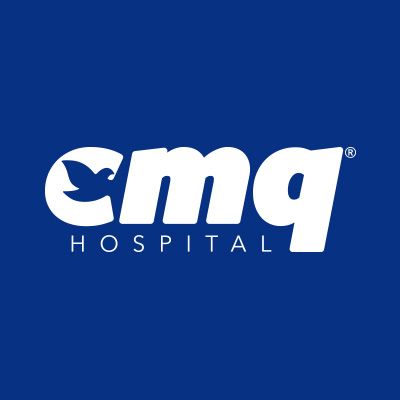Understanding Preeclampsia: A Comprehensive Guide to Maternal and Fetal Health
Exploring the Root Causes of Preeclampsia, a Disease that Encompasses 8% of all Pregnancy-Related Complications Worldwide
Every stage of motherhood is marked by a unique combination of joys but also challenges and Preeclampsia can be a serious challenge. It is a hypertensive disorder in pregnancy related to 8% of pregnancy-related complications worldwide. The World Health Organization estimates that there are more than 50,000 maternal deaths and over 500,000 fetal deaths due to this challenge worldwide. Thus, according to experts, preeclampsia is the leading cause of admissions of pregnant women to Intensive Care Units ICU.
In this article our experts in OB/GYN, as well as our specialists in Neonatology, Intensive Care, and Nutrition aim to not only inform but also provide you with support on this often downplayed condition. Together, we will explore everything from early symptoms to the importance of early detection. Furthermore, we’ll go beyond the challenges to discover labor and delivery management and the necessary care for newborns of mothers with preeclampsia. Read on and learn more.
Are you a mom-to-be, or know someone who is?
You can avoid preeclampsia. Schedule your appointment with our team of experts by calling 322 226 6500.
What is Preeclampsia?
Preeclampsia is a hypertensive disorder in pregnancy. It can sometimes occur in postpartum and has repercussions for both the mother and the baby. Normally, preeclampsia arises in near-term pregnancies. Additionally, according to the WHO, it is the cause of 9% to 26% of all maternal deaths per year. As we mentioned, this hypertensive disorder which is characterized by high blood pressure, can also damage organs such as the liver and kidneys.
Moreover, several studies have suggested that preeclampsia may have a higher incidence in women with obesity, pre-existing diabetes, hypertension, advanced age, and/or multiple pregnancies. Unfortunately, if it is not treated properly, preeclampsia can lead to serious complications like impaired liver function, kidney failure, new-onset headaches, pulmonary edema, renal insufficiency, and in extreme cases, death.
Hospital CMQ’s Medical Team Specialized in Preeclampsia
At Hospital CMQ, we care about you and your baby’s health. That’s why we want to give you the best possible care and make sure your pregnancy is both safe and comfortable. Our medical team of specialists is here to support you every step of the way:
Gynecologists at Hospital CMQ: Preeclampsia Detection and Management
Our highly skilled OB/GYNs play a crucial role in the early detection and management of preeclampsia. Through regular check-ups, blood pressure monitoring, and lab tests, they will work to identify any signs of preeclampsia and create a customized treatment plan.
Neonatologists at Hospital CMQ: Care of Newborns of Mothers with Preeclampsia
Our Neonatologists specialize in the care of newborns. Especially those who are born from mothers with conditions such as preeclampsia. Our specialists provide expert care for your baby, making sure he or she receives the care needed right from the moment of birth.
When Does It Start? Preeclampsia Signs and Symptoms
Early diagnosis and prompt management are essential to prevent mortality associated with preeclampsia. If you are over 20 weeks pregnant, it is time to get screened for preeclampsia. Below, our experts explain the parameters of how preeclampsia can be initially diagnosed:
- High blood pressure: Hypertension is a key sign of preeclampsia. Therefore, if you notice a sudden increase in your blood pressure, it is important to report it to your doctor.
- Swelling: Swelling, especially in the hands, legs, and face, can be a symptom of preeclampsia.
- Severe headaches: Severe headaches that do not go away with rest and/or medication may be a sign of preeclampsia.
- Visual changes: Blurred vision problems or sensitivity to light, may be associated with preeclampsia.
- Abdominal pain: Pain in the abdomen, especially in the upper right side, near the liver area.
- General discomfort: Less urine output, excessive weight gain, and shortness of breath during daily activities.
However, it is important to highlight that the diagnosis of preeclampsia will be made by your doctor. For this reason, it is essential that you do not miss any of your pregnancy appointments.
What will happen during my prenatal check-up appointment?
During your pregnancy, you will have regular visits with your gynecologist. Normally, these visits are more frequent towards the end of your pregnancy. During your prenatal check-up appointment, the doctor will take your blood pressure to make sure it is not too high. High blood pressure is defined as blood pressure greater than or equal to 140/90 mm Hg. Severe high blood pressure is greater than or equal to 160/110 mm Hg. Therefore, if your blood pressure is high or severe, it may be considered preeclampsia and might require immediate treatment.
Additionally, your doctor may order a urine test. If protein in your urine is found to be greater than 300 mg, it may indicate the presence of preeclampsia. Also, at every appointment, you will need to weigh yourself, as most doctors consider weight as part of your routine check-up to determine signs of preeclampsia. Moreover, if your doctor thinks you may have preeclampsia, he or she will recommend more frequent prenatal appointments to ensure that your baby’s growth is not affected.
What is the difference between Preeclampsia and Eclampsia?
Preeclampsia can take different forms and degrees of severity. Some of the most common types of preeclampsia are:
- Mild preeclampsia: Characterized by high blood pressure (140/90 mm Hg) and the presence of protein in the urine. Symptoms may be mild and often do not cause any significant problems. However, it can progress to more severe forms if not adequately managed.
- Severe preeclampsia: Severe high blood pressure. In this case, there may be damage to organs such as the liver and kidneys. In addition, there is a risk of complications for the baby.
- Eclampsia: A severe form of preeclampsia that involves seizures. These seizures can occur before, during, or after delivery. Unfortunately, it has serious consequences and can be life-threatening for both the mother and the baby.
- HELLP Syndrome: A condition that can develop in women with preeclampsia. It is characterized by blood clotting and liver damage.
- Recurrent preeclampsia: Some women may experience preeclampsia in more than one pregnancy. Recurrent preeclampsia increases the risk of complications and severe preeclampsia.
Notably, the management and treatment of preeclampsia will vary depending on the type and severity. Early detection, regular prenatal monitoring, and prompt medical treatment are critical to prevent and address symptoms. If you have concerns about this condition, it is essential that you contact your healthcare provider for proper evaluation and care.

Delivery with Preeclampsia: Safe Childbirth Management at Hospital CMQ
If you get diagnosed with preeclampsia, you may be wondering: What will happen during my childbirth? According to our experts, during delivery, the medical team will manage both the birth process and the risks that may arise due to preeclampsia. Consequently, this means that the mother and baby will be constantly monitored to assess their blood pressure and detect any changes in their vital signs.
Likewise, medication may be administered to control high blood pressure readings and to prevent seizures. This is specially important in cases of severe preeclampsia and eclampsia. Additionally, our neonatal team will be monitoring your baby’s response to the stress of labor. After birth, they will continue to monitor you and your baby’s stability to detect any complications. In some cases, you might be moved to the ICU and your baby might be taken to the NICU. However, each case is unique, and the specific medical treatment during your delivery will depend on your preeclampsia condition and your baby’s health.
The Special Care of the Newborn of a Mother with Preeclampsia
When a newborn has a mother who has experienced preeclampsia, they may require special care to ensure their health and well-being. According to our Neonatology experts, newborn babies born to moms with preeclampsia may have difficulty maintaining an adequate body temperature. Therefore, they may need to be in an incubator to maintain a stable temperature.
Another aspect to keep in mind is that some babies may experience respiratory problems, especially if labor happens early or if an emergency cesarean section is performed. Moreover, depending on the severity of the preeclampsia, it may compromise fetal growth. This will affect the weight of the newborn, and for this reason, a special feeding plan may be necessary. However, each situation is unique, and specific care will depend on the severity of the mother’s preeclampsia and the health status of the newborn.
How to Prevent Preeclampsia? Our Expert’s Insights
Preeclampsia is among the most serious complications that occur during pregnancy. Although it is not always preventable, there are measures and prenatal care that can reduce the risk of developing preeclampsia. According to our specialists in Gynecology and Obstetrics, some strategies to avoid preeclampsia are:
- Regular Prenatal Care: Visit your doctor regularly to monitor your health and the development of the baby.
- Healthy Diet: Maintain a healthy, balanced diet. Avoid salty processed food and sugary treats. Focus on a high-fiber, high-protein diet.
- Calcium and Folic Acid Supplements: Calcium and folic acid are important nutrients during pregnancy and help in the prevention of preeclampsia. Your doctor will advise on dosing.
- Weight Control: Maintaining a healthy weight before and during pregnancy can help reduce the risk of preeclampsia.
- Exercise: Moderate physical activity during pregnancy can benefit both the mother and the baby.
- Avoid Alcohol and Tobacco: Alcohol and tobacco can increase the risk of preeclampsia, so it is important to avoid them during pregnancy.
- Blood Pressure Control: Checking blood pressure regularly and following your doctor’s recommendations is essential.
- Sufficient Rest: Try to get enough sleep and rest when needed.
- Stress Management: Stress can have negative impacts on maternal health. Practicing stress management techniques, such as meditation or yoga, can be beneficial.
Frequently Asked Questions about Preeclampsia
The exact cause of preeclampsia is not completely known, but it is believed to involve genetic factors such as hypertension, obesity, diabetes, advanced maternal age (greater than 35 years old), family history, and preeclampsia in previous pregnancies, among others.
Preeclampsia can restrict the baby’s growth and development, leading to low birth weight or premature birth. It may also cause complications such as lung problems.
While prevention isn’t guaranteed, regular prenatal care, and managing risk factors (e.g., hypertension and obesity) can help reduce the risk.
Yes, it’s possible. Preeclampsia can occur without noticeable high blood pressure. Other symptoms like swelling, vision problems, and organ dysfunction are also considered.
Preeclampsia typically develops after 20 weeks of pregnancy, often in the third trimester. Early-onset preeclampsia can occur before 34 weeks.
Preeclampsia symptoms often resolve shortly after delivery. However, some complications may persist, and blood pressure still should be monitored postpartum.
There’s a genetic component, as women with a family history of preeclampsia may have a higher risk. However, other factors like age and pre-existing conditions also contribute.




